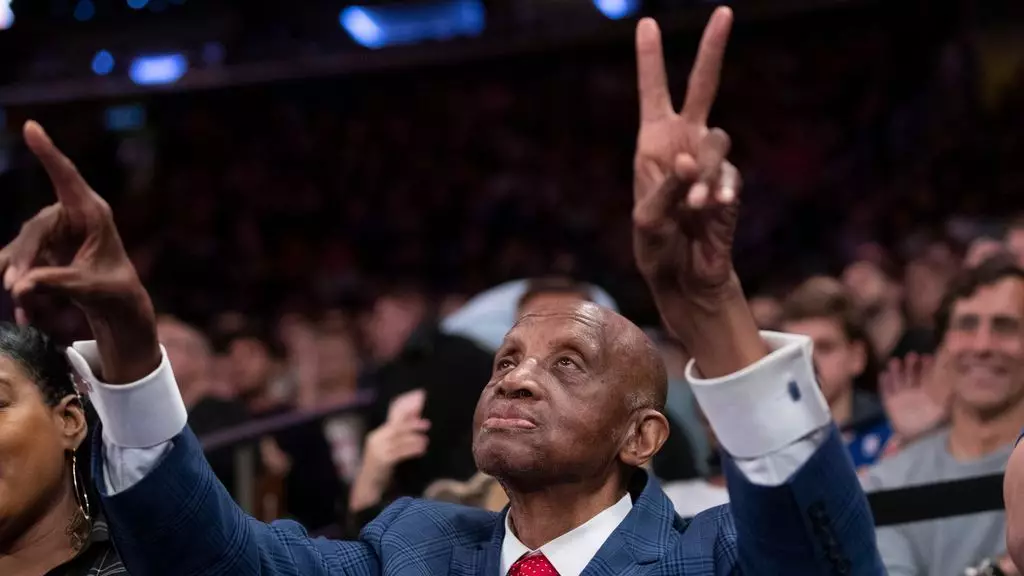The recent passing of Dick Barnett at the age of 88 marks the end of an era for basketball, particularly for the New York Knicks franchise. Barnett was not just another player on the roster; he was a crucial cornerstone of the team that brought home two NBA championships in 1970 and 1973. His extraordinary journey from a prodigious talent in Gary, Indiana, to a revered Hall of Famer exemplifies a legacy that transcends mere statistical achievements. Barnett didn’t just play basketball; he personified the spirit of the game — a blend of skill, determination, and a love for his city.
Looking back, Barnett’s contributions to the Knicks are celebrated not only in numbers but also in the hearts of fans. His on-court finesse and charismatic presence made him an endearing figure in New York sports history. The franchise encapsulated his essence when they noted that he “embodied everything it meant to be a New York Knick.” Such statements resonate deeply; they affirm that Barnett’s influence extended beyond his ten years in a Knicks jersey. He nurtured a culture of excellence and resilience.
Trailblazer in College Basketball
Before Barnett graced the NBA courts, he laid the groundwork for his storied career at Tennessee A&I (now Tennessee State), where he was instrumental in crafting what would become one of college basketball’s pioneering dynasties. Under his leadership, the Tennessee A&I Tigers clinched three consecutive NAIA championships, showcasing a level of dominance that was rare for that time.
More significantly, Barnett’s accomplishments brought attention to Historically Black Colleges and Universities (HBCUs) at a time when they were often overlooked. His honor as a two-time NAIA MVP and All-American reflects not only individual achievement but also the collective pride of his school and the HBCU community. Barnett fought tirelessly for the recognition of his college team, culminating in their induction into the Naismith Memorial Basketball Hall of Fame in 2019, a milestone that he passionately pursued and ultimately celebrated.
A Legacy of Recognition and Respect
It’s tragic yet poetic that Barnett’s immense contributions were finally recognized in the latter stages of his life, including an induction into the Hall of Fame as a player in 2024. Clarity in recognition has always been essential; how often do we reserve accolades for athletes in their golden years instead of during their prime? Barnett’s story urges us to reassess our appreciation of veteran players who often remain in the shadows of their contemporaries.
His jersey retirement in 1990 serves as a testament to his enduring legacy within the Knicks organization, ensuring that future generations will remember not only his statistics—accumulating over 15 points per game—but also his spirit. Hampered by injuries, his privilege of participating only once in the NBA All-Star Game hardly diminishes his stature; rather, it enhances his narrative as a robust competitor who faced challenges head-on.
Barnett’s journey was not just about personal achievements but also about advocating for justice and equity in sports. His visit to the White House in 2024 to meet with Vice President Kamala Harris illustrated that his passion extended beyond basketball into the realms of social significance. Through sport, he became a voice, creating ripples that fostered discourse and inspired change.
As the basketball world mourns his loss, it is essential to celebrate Barnett’s life—a dynamic individual who changed the way we perceive talent, hard work, and the legacy of athletes. His impact will continue to echo through the halls of Madison Square Garden and beyond.


Leave a Reply